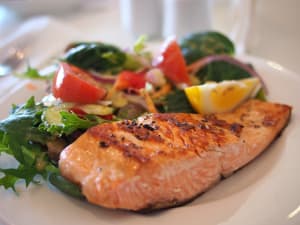
Diet is a crucial aspect of everyday life, yet navigating the sea of information can be overwhelming. From calorie counts to macronutrient ratios, the abundance of conflicting advice can leave you feeling lost. Amidst the chaos, it's easy to feel tempted to ditch food altogether or cereal for dinner. Many factors contribute to this confusion, including media influence and trends within the fitness industry. Whether it's an athlete endorsing a particular cereal or a health magazine promoting extreme eating habits, the noise can be deafening. However, amidst this cacophony, one thing remains clear: tailoring your diet to your activity levels and goals is essential for recovery, muscle growth, and powering through rigorous workouts.
Fueling Performance:
Bill "Superfoot" Wallace once humorously remarked on his pre-fight meal preferences, opting for familiar fare like a burger and fries. His insight sheds light on an important truth: our bodies are adaptive by nature. Throughout history, variety wasn't always an option, and reliance on familiar foods ensured survival. Consistency is key; straying from the foods your body has adapted to can disrupt this delicate balance. A single poor meal choice can derail an entire day of training, leading to unstable blood sugar levels, gastrointestinal discomfort, and diminished performance. For martial artists, dietary adjustments should be approached with caution. Drastic changes can be counterproductive, whereas small, incremental adjustments and keeping a food journal can provide valuable insights into how your body responds to different foods.
Eating for Recovery:
Training in martial arts can be physically demanding, leading to muscle fatigue and heightened injury risk. Proper post-training nutrition is vital for supporting recovery and minimizing setbacks. Prioritizing protein-rich foods aids in muscle repair and growth, while antioxidant-rich fruits and vegetables, along with anti-inflammatory foods like fatty fish and nuts, help reduce inflammation and enhance recovery. By nourishing your body with the right nutrients post-training, you can accelerate recovery and reduce the likelihood of injuries sidelining your progress.
Weight Management and Body Composition:
Achieving and maintaining an optimal weight and body composition is a nuanced process for martial artists. While performance objectives may dictate specific weight classes, prioritizing overall health is paramount. A nutrition approach centered on nutrient-dense foods, portion control, and mindful eating strikes this balance. Fueling your body with quality carbohydrates, lean proteins, and healthy fats, while paying attention to portion sizes and hunger cues, supports performance goals while safeguarding long-term health. Remember, it's not just about the number on the scale; it's about feeling strong, energized, and prepared to tackle challenges head-on.
By incorporating these nutrition insights into your martial arts journey, you're not just nourishing your body; you're unlocking your potential for growth, strength, and resilience. Mastery extends beyond the dojo, encompassing every aspect of your lifestyle, including your dietary choices. Embrace these principles, listen to your body, and let your nutrition propel you toward your martial arts aspirations. Here's to a future brimming with vitality, strength, and unwavering commitment to your craft. Remember everyone is different, and your nutritional needs can be as unique as your fingerprint. It's just another element to your jounrey in connecting your body to your mind. Peak.....Out


